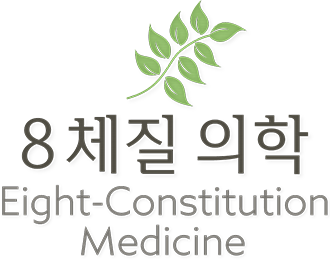Eight Constitutions Gastrotonia
Gastrotonia is a constitution in which stomach and pancreas are proportionally strong while bladder/uterus and kidney are proportionally weak.
Foods that support the pancreas and stomach are generally allium vegetables (onions, garlic, chives, scallions), ginger, peppers, curries, spices, apples, honey, ginseng. Such foods can overstimulate the strong organs (stomach and pancreas). The strong organs have a regulatory role over the weaker organs; thus, overactivity of the strong organs can subsequently lead to further suppression of their antagonists, the weaker organs (bladder/uterus, kidney).
As a result, the originally weak bladder/uterus, kidney becomes proportionally weaker, causing the relational discrepancy between the strong organs (stomach and pancreas) and weak organs (bladder/uterus, kidney) to increase, creating a state of excess imbalance. This causes the relational support between all organs and interactions to change; the immunity achieved a state of appropriate imbalance becomes weakened and compromised, allowing clinical pathology to arise.
For example, acute and chronic stomach spasms, arthritis and its associated weakened immunity when the strong organ-- the stomach—is overactive; allergic reactions, anxiety, and depression can result from an overstimulated pancreas. If an unhealthy state persists in this constitution, the patient may be prone to chronic indigestion, chronic migraines, anxiety disorder, and rheumatism.
For example, acute and chronic stomach spasms, arthritis and its associated weakened immunity when the strong organ-- the stomach—is overactive; allergic reactions, anxiety, and depression can result from an overstimulated pancreas. If an unhealthy state persists in this constitution, the patient may be prone to chronic indigestion, chronic migraines, anxiety disorder, and rheumatism.
Because Gastrotonia maintains a lot of “heat” in the stomach, antibiotics within the penicillin family are known to cause severe side effects in this constitution. Gastrotonia is not the only constitution that is prone to side effects of antibiotics; however, Gastrotonia are more likely to experience side-effects in comparison to other constitution and thus must take precautions.
The above are not absolute characteristics, but general tendencies of Gastrotonia.
Gastrointestinal digestive disorder can occur from side effects of medicines, hot & spicy foods or herbal foods, and alcohol. It is beneficial to always consume cool & fresh foods and a glass of cool water when you wake up in the morning.
| HARMFUL REGIMEN | BENEFICIAL REGIMEN |
|---|---|
| chicken (including broth), turkey, goat meat, duck meat, brown rice, glutinous rice, red pepper, pepper, mustard, cinnamon, ginger, green onion, onion, curry, all hot & spicy foods. seaweed, kelp, apple, mandarin, orange, lemon, mango, sweet potato, taro, bellflower, burdock, honey, plum, jujube, ginseng, red ginseng, sesame oil, tomato, walnut, chestnut, pine, ginkgo, sunflower seed, turmeric, antibiotic | White rice, white rice products such as white rice noodles, barley, buckwheat, mung bean, soybean, aduzuki bean, cucumbers, various types of cabbage (napa cabbage, cabbage, bok choy, etc.), various types of lettuce, other green vegetables such as broccoli, most ocean fish and seafood & shellfishes, pork, eggs, melons, watermelons, melons, pineapples, strawberries, bananas, ice (cold water), aloe vera |

